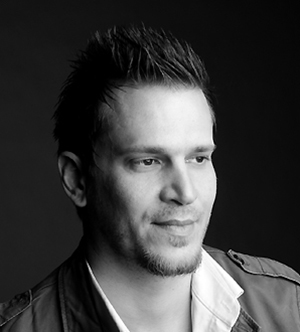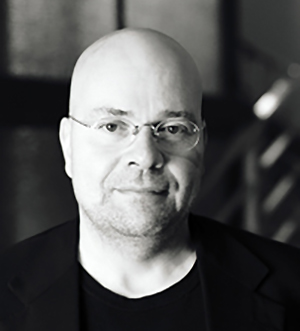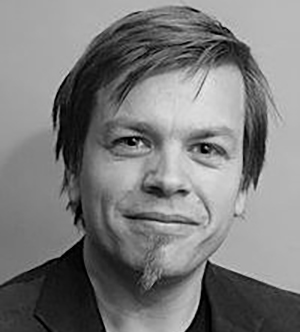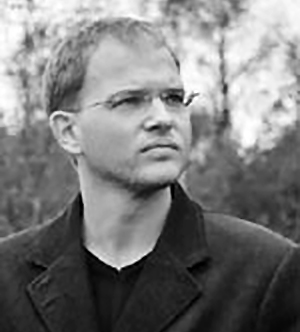Companies with international ambitions are increasingly becoming global players. Many of them have decided to fight for their share of the international market, or even for market leadership through such activities as company acquisition or the establishment of joint ventures, as well as by engaging in various other types of cooperation with companies abroad. Such partnerships are now more rapidly attainable than ever before, thanks to modern media of communication and increasing mobility, among other things. Consequently, these global players have a constant need to recreate their corporate culture and identity. Read more
Archiv des Tags «Winter School»
 Due to the impacts of postmodernism, social and cultural anthropology has been dealing intensively with the possibilities and limits of representing “other” human beings and their meaningful worlds. So far, the discipline has discussed ways of improving its methods of representation without, however, fully raising questions about the quality and validity of the objects represented and the very idea, that they could be “represented”. Thus, despite attempts to purify classical anthropological categories, substantialized identities (“Humans”, “Others”, “Pygmies” etc.) along with various forms of binary oppositions (us – them, culture – nature, human – animal, fact – representation) have been rehearsed. The project aims to dissect and challenge the metaphysical outputs of the “anthropological machine” (Giorgio Agamben).
Due to the impacts of postmodernism, social and cultural anthropology has been dealing intensively with the possibilities and limits of representing “other” human beings and their meaningful worlds. So far, the discipline has discussed ways of improving its methods of representation without, however, fully raising questions about the quality and validity of the objects represented and the very idea, that they could be “represented”. Thus, despite attempts to purify classical anthropological categories, substantialized identities (“Humans”, “Others”, “Pygmies” etc.) along with various forms of binary oppositions (us – them, culture – nature, human – animal, fact – representation) have been rehearsed. The project aims to dissect and challenge the metaphysical outputs of the “anthropological machine” (Giorgio Agamben).
 In media studies it is often argued that the emergence of new media inevitably leads to anxieties among devotees of old media who suspect that these media become irrelevant: photography menaces painting, film executes photography, tv menaces film, and the Internet finishes everything else. The printed book is no exception from this logic. Long before the invention of ebooks and Open access, various prophets predicted the decline of the Gutenberg Galaxis. Even without subscribing to such apocalyptic visions, we can not overlook the fact that the humanistic book has come under pressure. Being the unquestioned and primordial scientific medium in the 20th century, an assembly of habituations and practices has shifted within a few years. That implies institutions of advanced studies, publishers, research communities and the scholars themselves. The question, thus, is: Which role will the printed book play within and without the humanities?
In media studies it is often argued that the emergence of new media inevitably leads to anxieties among devotees of old media who suspect that these media become irrelevant: photography menaces painting, film executes photography, tv menaces film, and the Internet finishes everything else. The printed book is no exception from this logic. Long before the invention of ebooks and Open access, various prophets predicted the decline of the Gutenberg Galaxis. Even without subscribing to such apocalyptic visions, we can not overlook the fact that the humanistic book has come under pressure. Being the unquestioned and primordial scientific medium in the 20th century, an assembly of habituations and practices has shifted within a few years. That implies institutions of advanced studies, publishers, research communities and the scholars themselves. The question, thus, is: Which role will the printed book play within and without the humanities?
Dear participants
We are very much looking forward to meeting you at Schloss Münchenwiler in January! Meanwhile, we offer you blog space to get to know each other in advance. This blog is meant to connect participants before and after the Winter School.
Here you can share information about your research projects as they progress; you can also share information about events that might be of interest to your peers; or, you can raise questions that are currently on your mind. In short, this blog offers a space where TransFormations can be discussed as well as performed.
In that sense: Join us and transform!
Your Winter School Project Team
Prof. Dr. Virginia Richter
Dr. Manuela Rossini
Dr. des. Sabina von Fischer
 Societies and cultures depend on shared knowledge – for instance about different social roles and positions, the norms and behaviour associated with these roles, rights and duties, shared values or a common cultural heritage to name but a few examples. In order to be shared, knowledge on the one hand needs to circulate within a specific group. And on the other hand, of course, knowledge (or bits and pieces thereof) is also constantly exchanged with other such groups – purposefully or not. Hence, knowledge – willingly or not – is constantly on the move.
Societies and cultures depend on shared knowledge – for instance about different social roles and positions, the norms and behaviour associated with these roles, rights and duties, shared values or a common cultural heritage to name but a few examples. In order to be shared, knowledge on the one hand needs to circulate within a specific group. And on the other hand, of course, knowledge (or bits and pieces thereof) is also constantly exchanged with other such groups – purposefully or not. Hence, knowledge – willingly or not – is constantly on the move.
 “A time must come when there will be a science of the future, just like there is a science of the past – and when by virtue of this science the noblest humans calculate for the future as well as for themselves,” writes German philosopher and theologist Johann Gottfried Herder in his 1797 essay On Knowing and Not-Knowing the Future.
“A time must come when there will be a science of the future, just like there is a science of the past – and when by virtue of this science the noblest humans calculate for the future as well as for themselves,” writes German philosopher and theologist Johann Gottfried Herder in his 1797 essay On Knowing and Not-Knowing the Future.
In my talk, I will discuss Herder’s and other concepts of futurity that were advanced around the year 1800. Thereby, an epistemological TransFormation par excellence will be observed – the one to bridge knowledge about the future with a general futurization of knowledge.
When: 22-27 January 2012
Where: Schloss Münchenwiler near Berne, Switzerland
Languages: English (main), German, French
ECTS: 6 | Costs: 500.- Swiss francs (travel and accommodation covered by organizer)
Application deadline: 27 November 2011
Prof. Dr. Christiane Schildknecht (Philosophy, University of Lucerne) An explication of the concept of knowledge, including its limits and an analysis of different forms of knowledge.
PD Dr. Roland Wenzlhuemer (History, University of Heidelberg) The changing relation between information and knowledge: new communication technologies and contemporary societies’ perception of them – the example of telegraphy.
Prof. Dr. Michael Hagner (Science Studies, ETH Zurich) Generation and transfer of knowledge in the digital age: the fate of the printed book and changing notions of intellectual property, reading, writing and interpretation.
PD Dr. Stefan Willer (Literary Studies, ZfL Berlin) Figurations of future knowledge: a rhetorical and epistemological investigation of knowledge-to- come in connection to current prognostic notions like ‘sustainability’, ‘security’, ‘scenario’, ‘contingency’.
In post-industrial societies, due to the impact of globalisation and technological development, we are witnessing a growth and diversification of the sites of knowledge production and the ways in which a variety of actors articulate and circulate knowledge. As a result, the privileged position of ‘scientific’ knowledge is contested, making knowledge the symbolic and material capital not only of academic ‘experts’. By the same token, the authorization of ‘knowledge’ becomes a matter of debate and changing power structures. The Winter School analyses and discusses these changes from a historical, sociological, cultural and philosophical perspective. It reflects in particular on the challenges thereof for the humanities and the social sciences regarding their role in the knowledge society of (post)modernity and their contribution to larger processes of transformation.
From 2012 to 2015, with the IASH as the leading institute, the Philosophical-Historical Faculty of the University of Bern organizes four international Winter Schools of one week each. Under the thematic umbrella “TransFormations”, the Winter School concentrates on the analysis and shaping of local and global processes of change in its various forms and formations at the intersections of knowledge, history, culture and society.

